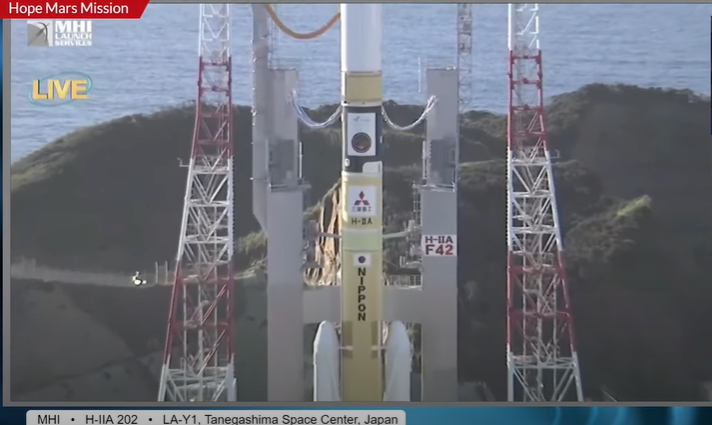The United Arab Emirates has successfully launched its first Mars mission from the territories of Japan. Called Hope or Al-Amal, this accounts as the first space mission to Mars in Arab world.
The Arab World also wants to look at the launch as inspiration for the Arab youth, and they need it, since the region is marred with conflicts and wars. The UAE government tweeted, saying it offers "pride, hope, and peace" among the community.
HE Eng. @DrAlahbabi delivered a speech about the #UAE's experience in inspiring, educating & training #young people by working on ambitious #space projects that promote pride, creativity & innovation & give hope to a promising future for #youth across the region. pic.twitter.com/9Y5rOdGxAa — وكالة الإمارات للفضاء (@uaespaceagency) April 25, 2019
From a report on the Sydney Morning Herald, the National Aeronautics and Space Administration has released a live feed during the launch. The rocket blasted off from the Tanegashima Space Center in Japan. Those who have witnessed the launch could not help but to smile at the launch, as seen from the live feed.
Around an hour after the launch, the feed also featured the people in the control room rejoicing and applauding this latest success in the Arab world.
Life on Mars
It has been said that these space explorers will follow through the general objective of the mission, that is, to put an end to the riddle on whether there is life on Mars or there isn't.
In Dubai, United Arab Emirates, the locals are proud and excited with the outcome of this latest launch. Sarah al-Amiri, the UAE Mars mission's deputy project manager, stated it is "an describable feeling" to see the rocket blasting off almost smoothly, without any issues.
Al-Amiri is also the state minister for advanced sciences, and said on Dubai television, "This is the future of the UAE."

In line with other nations
This is one of the world's biggest space launches, competing with China's Tianwen-1 and the United States' Mars 2020, taking advantage of the time when the positioning of Mars with Earth is most proximate.
This October, NASA astronomers are saying that Mars will be at around 62m km or 38.6m miles from Earth.
Also Read: Fact-Check: NASA Didn't Change Zodiac Signs; You're Still a Gemini
The space travel will be long, since the rocket will be reaching Mars' orbit not this year, but in February 2021, marking the milestone of the 50th anniversary of the United Arab Emirates.
Unlike the other Mars missions, the rocket will not land on the red planet, but will orbit around it for the entire Martian year, which is a duration of 687 days.
Weather patterns
Aside from probing life on Mars, one of the other objectives of the mission is to find out the weather patterns in the planet. It follows the larger goal of being able to establish human settlements in the next century.
Also Read: Amid COVID-19, China's First Mars Mission Will Finally Happen in July
"What is unique about this mission is that for the first time the scientific community around the world will have an holistic view of the Martian atmosphere at different times of the day at different seasons," project manager Omran Sharaf said in the briefing.
"We have a strategy to contribute to the global effort in developing technologies and science work that will help one day if humanity decides to put a human on Mars."
ⓒ 2026 TECHTIMES.com All rights reserved. Do not reproduce without permission.




